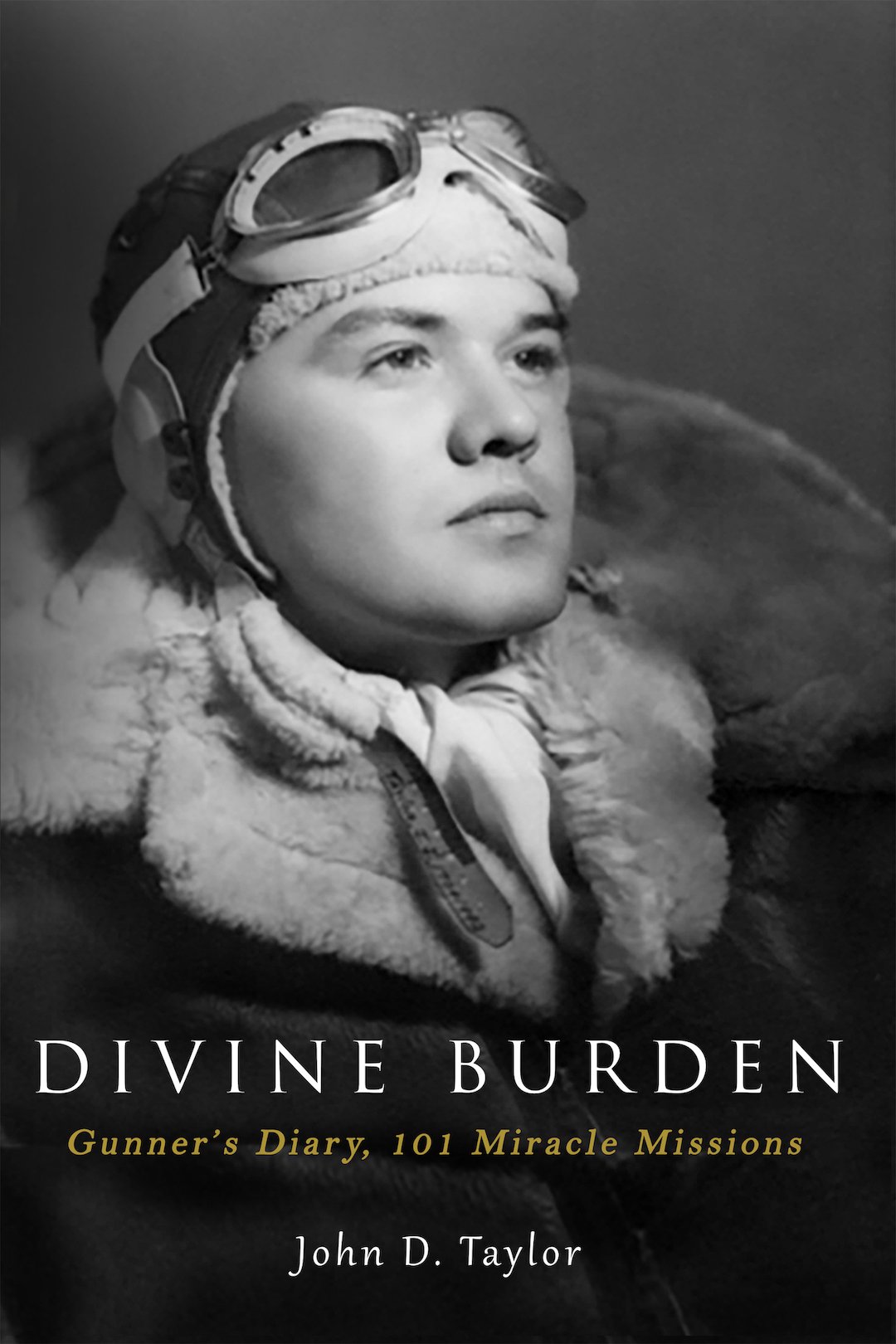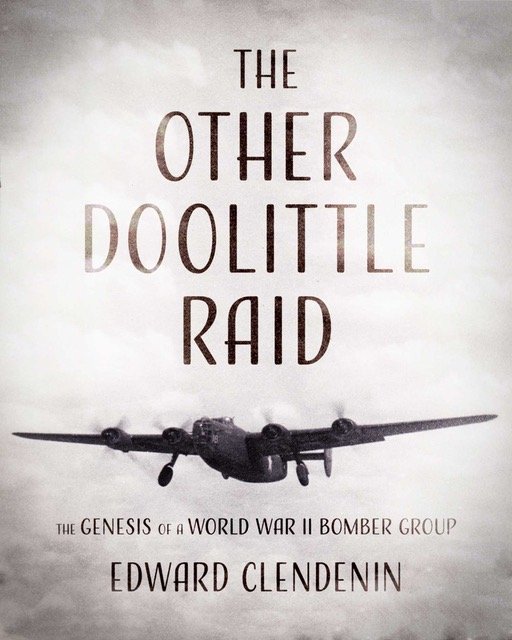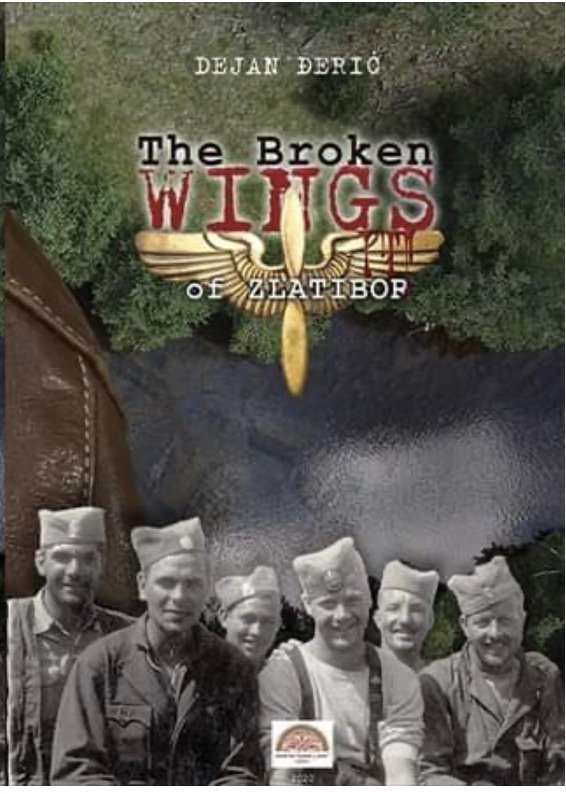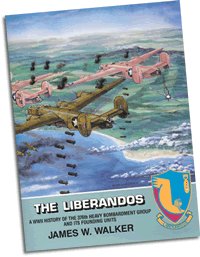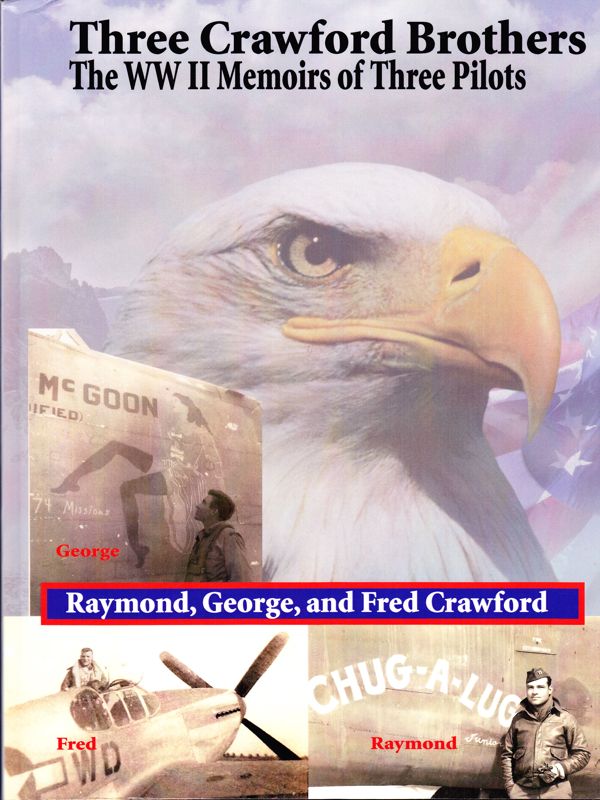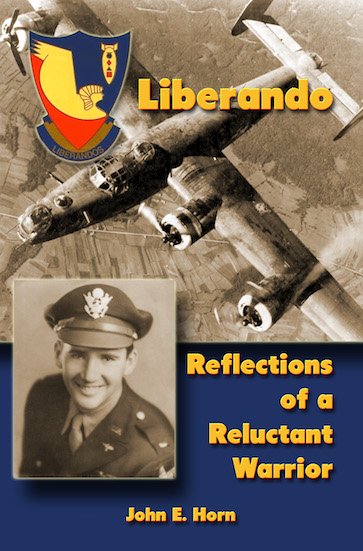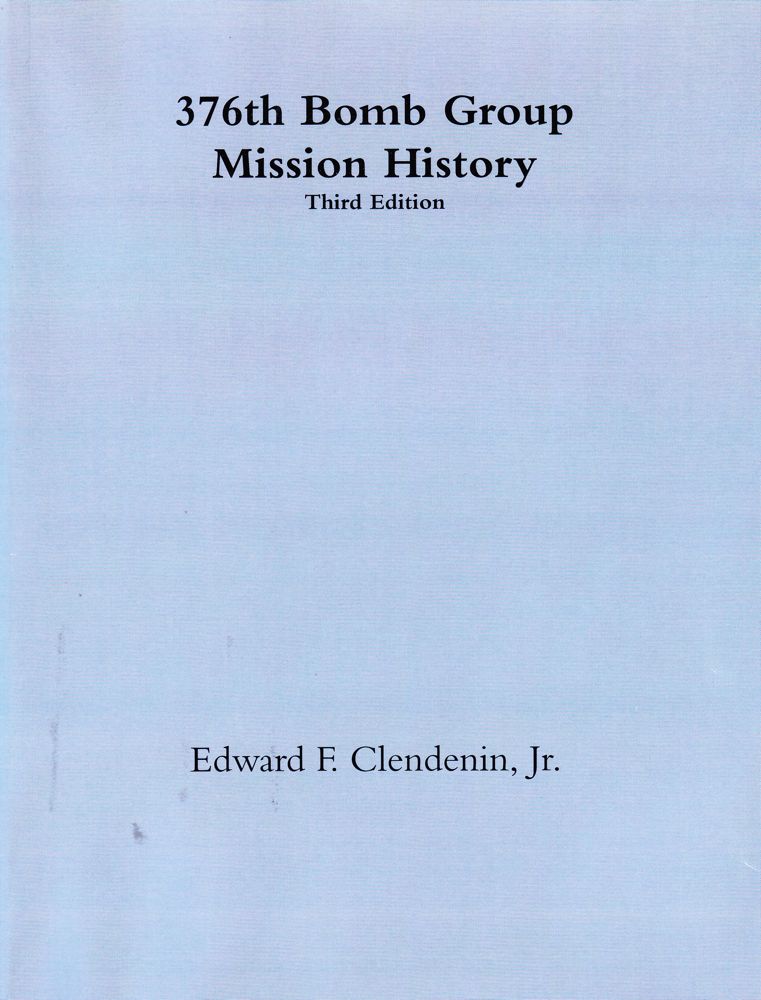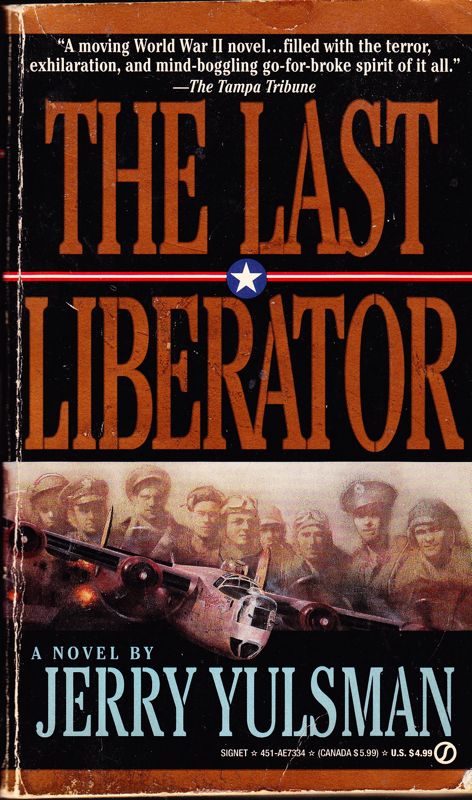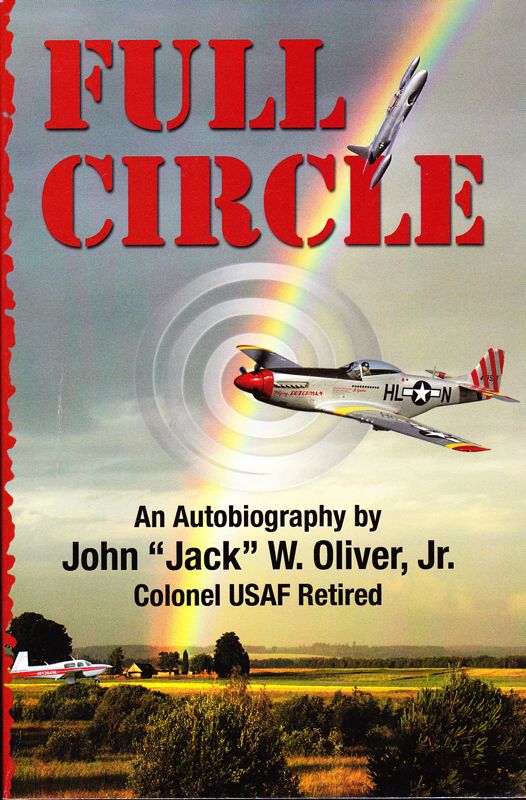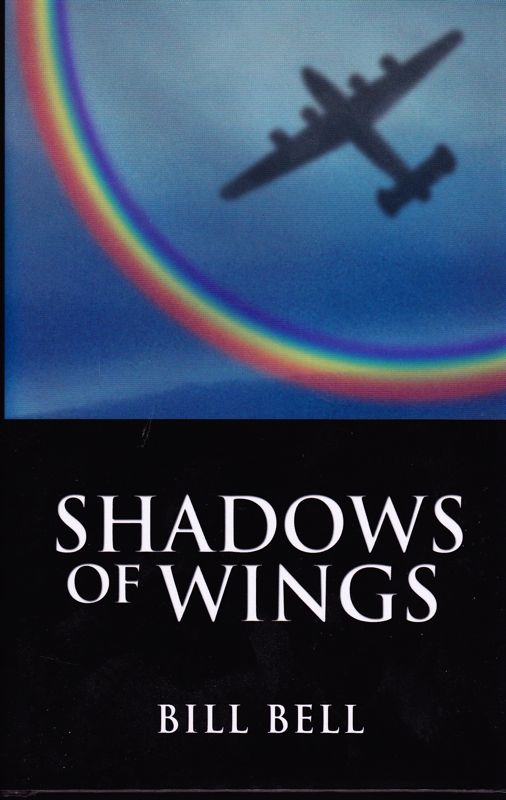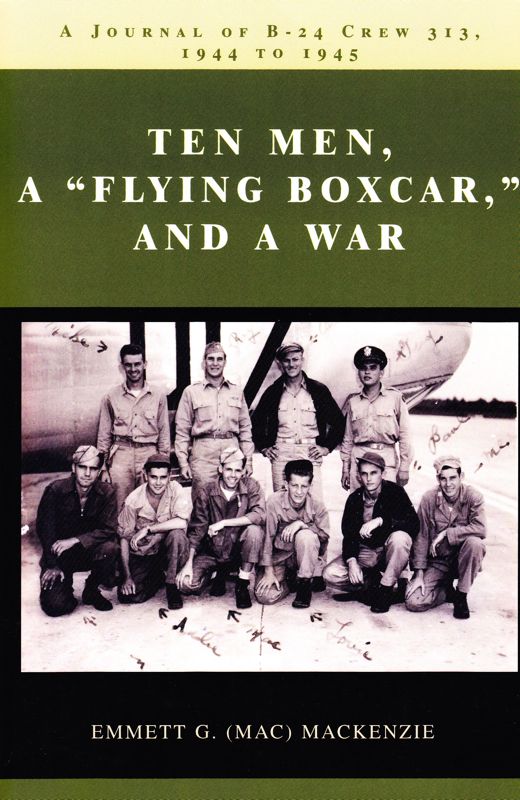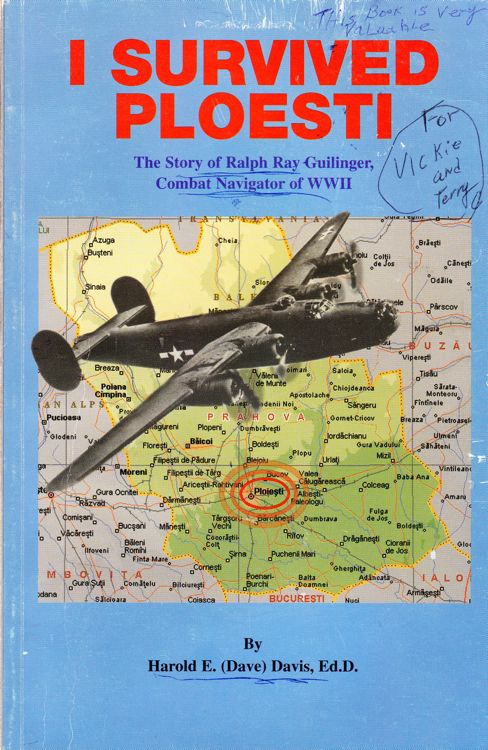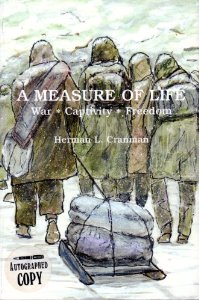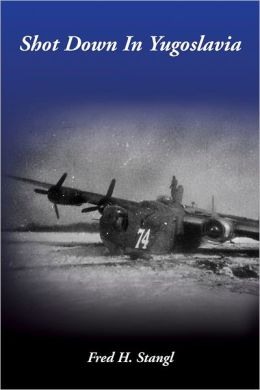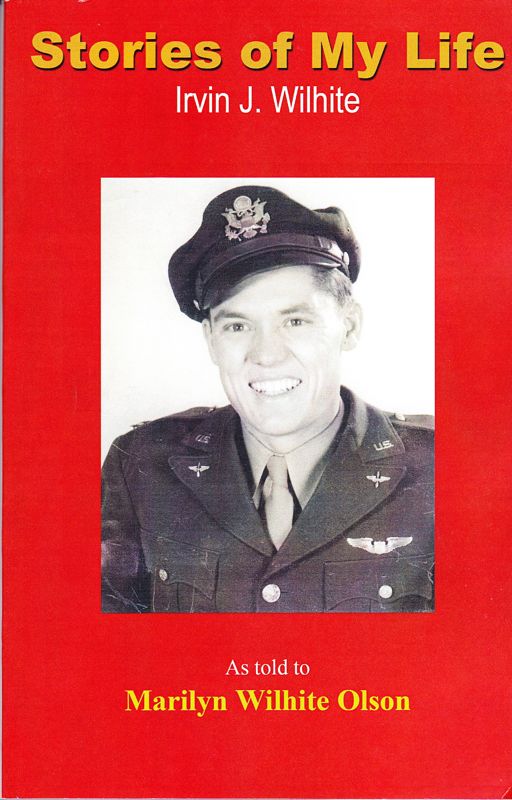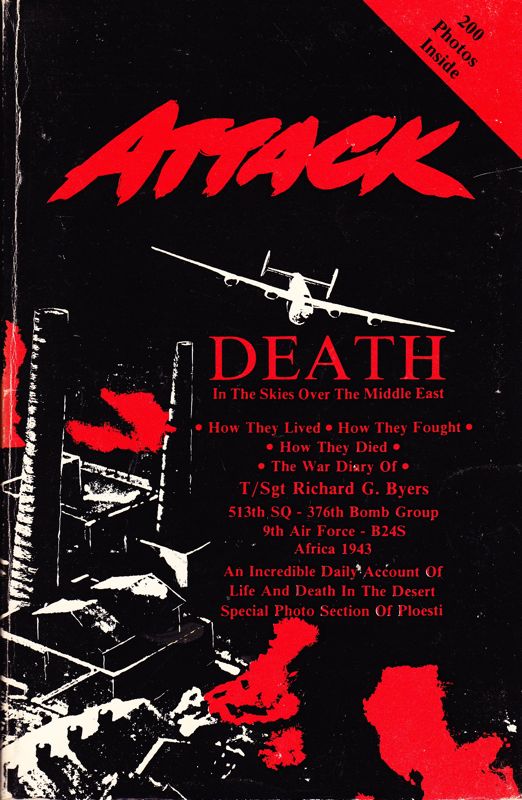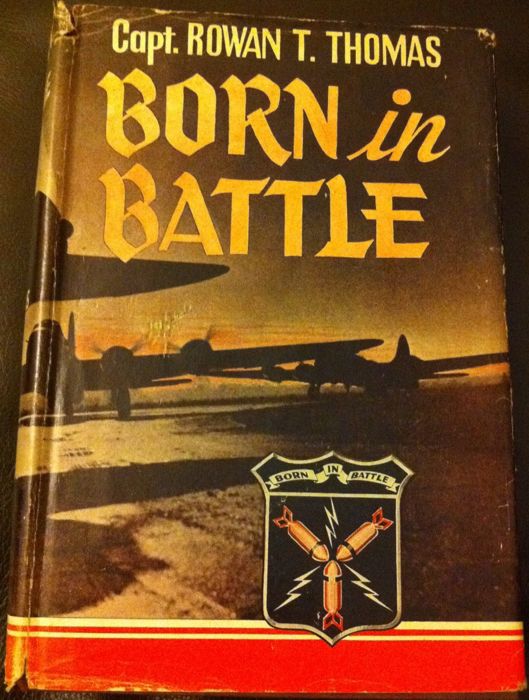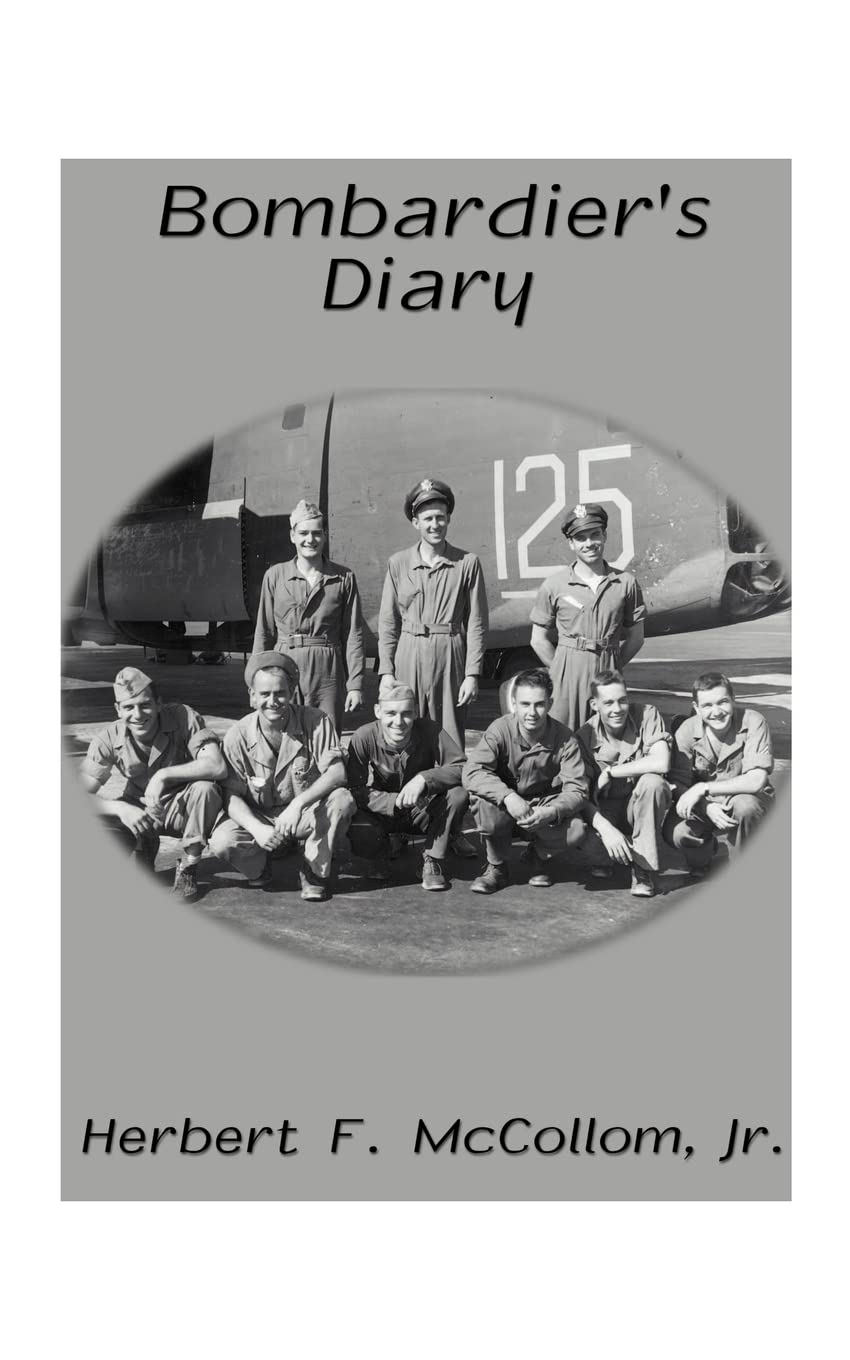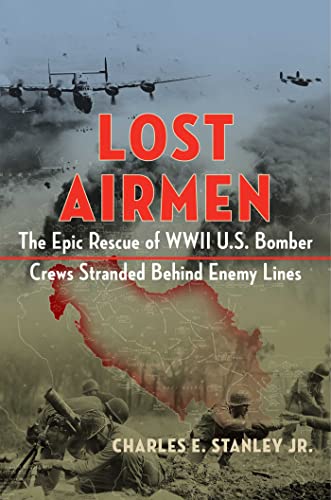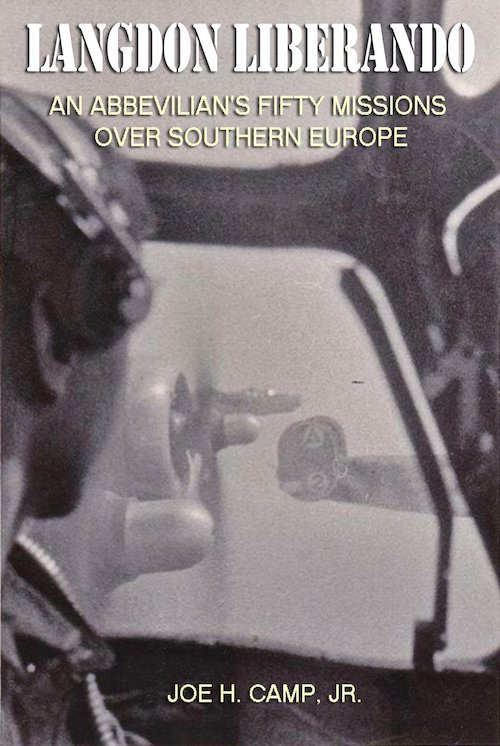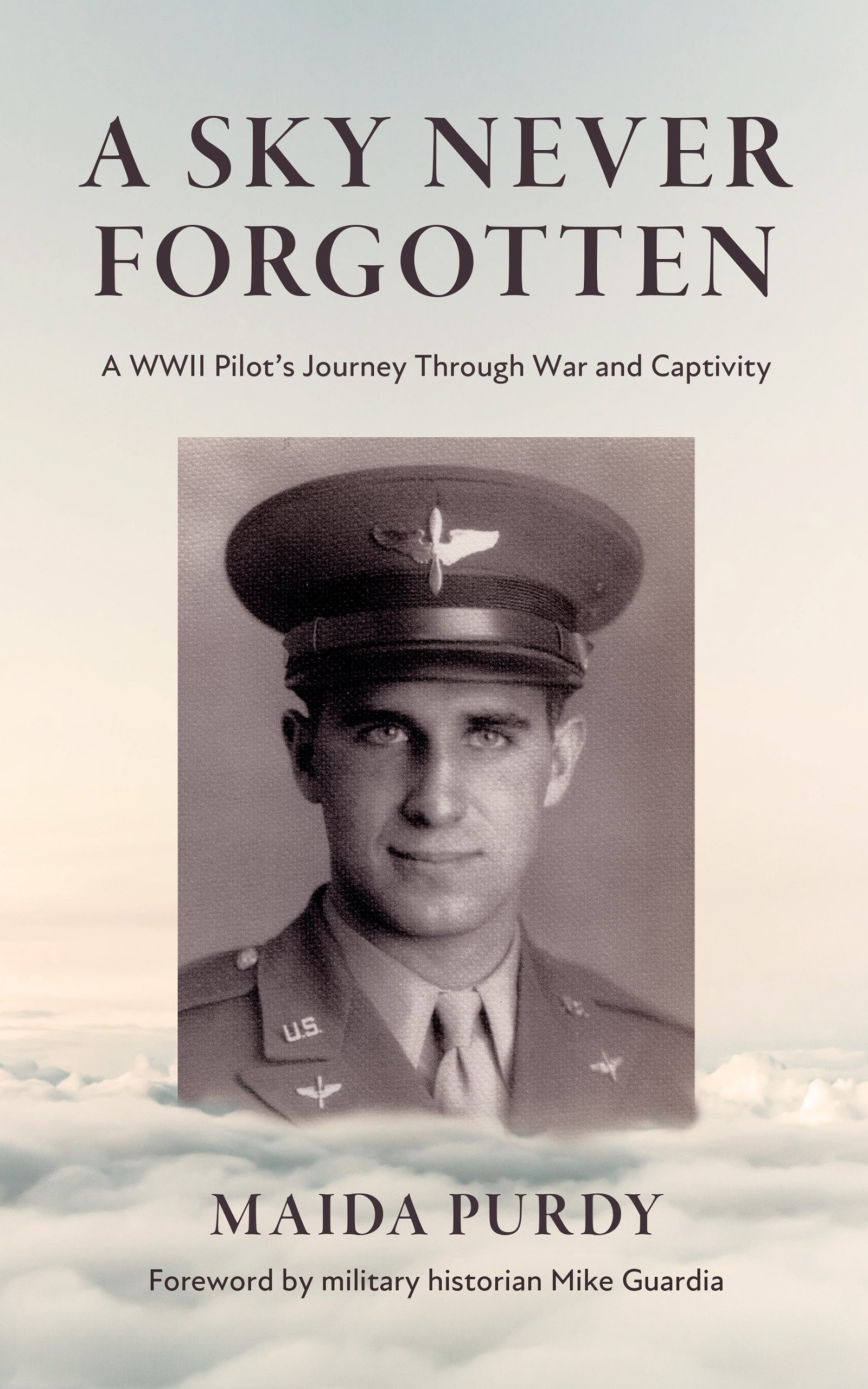Glenn I. White, Mission December 15, 1944
Missing In Action
On December 15, 1944 we were flying our 26th mission out of Leece, Italy. Our target was the marshalling yard at Innsbruck, Austria. We were flying the lead plane and on this particular mission our regular copilot Reginald O'Hara and our bombardier Chris Callas were not flying with us. Reggie was replaced by William (Bill) Kramer, the brother of our pilot. Chris was replaced by M.R. Gerszewski who was Bill Kramer's regular bombardier. We also had a weather observer flying with us making a crew of eleven members.
We were able to reach our target to release our bombs. I just recently learned that our mission was successful, destroying seventy-six percent of our target.
The anti-air craft guns of the enemy were very active and I think we were flying at an altitude of 19,500 feet when we lost two engines on the B-24. After losing the two engines our pilot desperately tried to hold his altitude. I'm not sure but I seem to remember that our third engine was giving us trouble so Lt. Kramer gave orders to throw all ammunition and excess baggage overboard. I was to remain at my station (tail gunner) since there were fighters in the area.
One of our crew-I think it was Van Schyndle - threw my flight jacket out and my cigarettes were in the pocket. I guess they were throwing everything out they saw. The plane was taking such a beating it looked like a sifter. Our pilot gave orders to bail out. I know very little about making a jump but I remembered we were told during our interrogations that if bailing out over enemy ant-air craft fire, we were to pull a delayed jump. In other words, don't panic; be patient in releasing the cord on your parachute which I did. While floating down two of our crew passed me. Their chutes had been hit and had holes in them. I believe they were Aaron Sandgartin and Lynn Hatch-I'm not sure.
Then I landed some girls came running toward me along with several men. The girls wanted my parachute. I understand they wanted to make clothing out of the silk. This was somewhere around Udine, Italy approximately at noon.
I was fortunate to have my G.I. shoes attached to my parachute rigging. The first thing I did was to give the ladies the chute, and then I changed my shoes. The men took me to a field where fodder shocks were placed to form a circle. I was given some civilian clothes so I changed out of my uniform. I later learned if I had been taken prisoner by the Germans they could have tried me as aspy.
I was then taken to the outskirts of the village of Udine and placed in a single fodder shock. The Germans were searching the village for us. Later I was taken into the village and joined a group of men roofing a building. I saw the German soldiers coming in our direction so I jumped off the building and ran, finding an old man in his yard with a rake. I grabbed his rake, telling him I was an American.
Naturally he was taken by surprise. He took me to an old lady's house and I hid there for awhile. The old gentleman finally came back for me and took me to his home which was one large room with a pantry. We sat at the table together cleaning wheat-running it through a rake of some sort. This wonderful old man had worked in the coal mines in West Virginia years before and could speak English fluently. He told me if the Germans approached us for me to keep my head down and repeat what he said.
The Germans did come and, pushing the old man's wife aside, looked in the pantry and under the bed, then came back to the table where we were seated-one behind the old man's chair and one standing behind my chair. They asked if he had seen any Americans. He said, "Niente (none) Americans." They asked me the same question. I said, "Niente Americans." They turned to leave pushing the old lady aside as they left. The old man went out and later came back with two bicycles. We rode through the village and somewhere outside the village we met a horse-drawn buggy or wagon. I discarded my bicycle leaving the good old gentleman. I hid under the hay in the wagon. It was dusk when we arrived at the foot of the Alps. There we met the partisans. The first thing they wanted was my forty-five pistol. I refused to give it to them. They told me they had my comrades and they had given them their forty-fives so I told them to take me to my comrades, then I would give them my forty-five.
I'm not sure but it must have been nine or ten o'clock when we arrived at this house up in the Alps. I can remember going up stairs like a barn loft. There were McCarns, Hatch, Sandgartin and Swain. At first they didn't believe it was me with those civilian clothes on but finally we had a very happy reunion. Of course we wondered what had happened to the rest of the crew. Two of the crew members, the bombardier and the weather observer, had broken legs and were brought in later. Eventually we learned that Van Schyndle, George and Bill Kramer, and George Smith were captured by the Germans.
The Germans came up every day looking for us. We hid the two men with broken legs in a cellar while we and the partisans ran hiding in the mountains evading the Germans and returning by late evening. Some of the Germans were ski troopers dressed in solid white which made them very hard to see in the snow-covered mountains of the Alps. During our stay there, the partisans went into the village to get some wine. A German soldier followed them out and he was captured and brought up to where we were staying. Two of our crew could speak some German so they questioned him. He denied being a active German soldier. He said he was with the Red Cross. The next morning around ten or eleven 0' clock, the partisans tried to get one of us to agree to shoot their prisoner. I'm proud to say we all refused. They took their prisoner down the hill where they had a grave dug. They disrobed him, shot him and cover him up.
I'm not sure how many days we stayed at this particular house but it was several days because we tried to find shoes for our boys so we could travel through the snow-covered mountains. The day after the German soldier was killed we started out trying to make it back to our Headquarters in Bari, Italy. We traveled by foot and the two injured men rode in a cart. I remember taking care of these two and it was a blessing for me because as we traveled through the villages, their being on a cart, if we were given any foot it went to them first. They always shared with me.
We found a partisan hospital and left the two crew members there so they could have costs put on.
I remember we stayed in barn lofts most of the time. Body lice were very bad as we traveled. Although we were in deep snow and very cold temperatures in the Alps, our body heat, s=especially under the arms, caused them to make us very miserable. We took our shirts off, turned them inside out and burned the body lice. I can't say we destroyed all of these little pests because we were still very uncomfortable.
I became very ill with a bad case of dysentery and had to be separated from my crew members. I was placed in a very humble home. The father had been killed by the Germans as they went into Greece. The mother remained there with one son fourteen years old and two daughters sixteen and nineteen.
I was given the best of care. I think they had three chickens, a cow and a dog. If they received one or two eggs, she would fix them for me; likewise the milk. My bed was up on top of the heating place. The girls kept my room very neat and clean.
On Sunday they all went to church. They were very devout Catholics. When they came home from Church the mother fixed dinner. As I would be leaving the next morning I asked her if I could come to the table and join them. She was so humble and embarrassed, but I joined them. There was a big (community dish) in the middle of the table and we all ate out of this one dish. It was corn meal without seasoning of any kind.
The next morning I rejoined the partisans. It was a very cold morning. I remember this family crying as I left them. They gave me their address and I had hoped to someday visit them or do something for them to repay them for their compassion, concern and sacrifice on my behalf. That's one reason I take such as active part in the "Love in a "Shoebox" project.
On our return we had to cross the German lines several times. I remember on night we had to cross a road, railroad and a river. It was very, very cold. They had us to strip off our clothing and hold them over our heads as we waded across the river. The water was up to our necks. Being an old country boy I kept my socks on and as soon as we came out of the water I noticed the other boys pulling the pebble rocks from their feet, skin and all. I was so thankful for my socks. They gave each of us a canteen cup full of vodka and told up to drink it down. I remember it made me drunk and I began to sing. The partisans had to come and quiet me down.
As we were successful in crossing these obstacles we took to the mountains. We were on a little dirt road about two-thirds of the way up the mountain and the partisans decided we would take a rest. There was one problem as we were resting. The German S/S troopers were camped a few hundred feet from where we were resting. We noticed the men leaving the mess hall, going from one building to another. We told the partisans that we had better run. "Oh, no, they can't reach us from there." It was only minutes before bullets were piercing the ground all around us. We got up and started to run. There was an English soldier with us. He must have had infantry training for as we ran, he tackled me and said, "When I say fall, you fall. It takes them nineteen seconds to get you in their sights and for the bullet to reach you." So I followed his orders and we arrived safely over the knoll. Then the Germans began to fire their mortar fire over the knoll and we moved on. When we arrived in a safe place the partisans who had left their guns and ammunition back on that dirt road tried to force us to go back for their equipment. Naturally we refused.
On another occasion we ran into the Germans pulling out of Greece and I thought of the family whose address I had. Afraid of what the Germans might do to them if they got the address, I burned it. I memorized it but we were so long getting back I forgot it.
The partisans turned us over to a captain. We boarded a ship taking us across the Mediterranean to Italy. I was the first one of our crew to reach Bari. After de-lousing and processing me, they interrogated me and let me go back to my home base.
Arriving in Leece I was taken to the Officers' Club. As usual my friend Chris was playing cards. I called out, "Lt. Callas." He didn't answer. I called out, "Chris." He was dealing and he threw the deck of cards into the air and came running, hugging me, all eighty or eighty-five pounds. He took me up to the bar and we talked about what had happened. I was sent to Rome, and then back to the United States as a Project R soldier.
It was during this experience that I promised God if He would bring me safely back to this great country, I would serve Him without reservation.
- Rev. Glenn White, Jr.
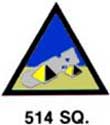
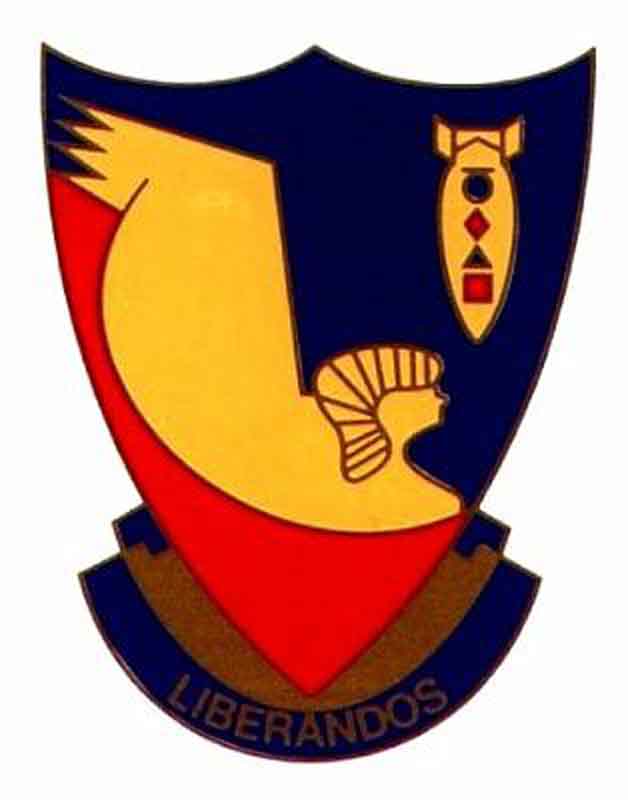
The website 376bg.org is NOT our site nor is it our endowment fund.
At the 2017 reunion, the board approved the donation of our archives to the Briscoe Center for American History, located on the University of Texas - Austin campus.
Also, the board approved a $5,000 donation to add to Ed Clendenin's $20,000 donation in the memory of his father. Together, these funds begin an endowment for the preservation of the 376 archives.
Donate directly to the 376 Endowment
To read about other endowment donation options, click here.
Reunion
NOTE change in the schedule !!
DATES: Sep 25-28, 2025
CITY:Rapid City, SD
HOTEL: Best Western Ramkota Conference Hotel; 2111 North LaCrosse St., Rapid City, SD 57702; 605-343-8500
Click here to view videos of the 2022, 2024, and 2025 reunions.
Click here to read about the reunion details.
